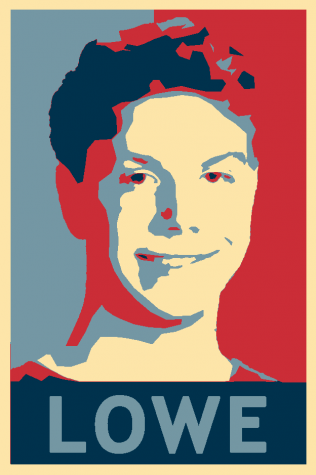Letter from the Editor: Why democracy has fallen victim to polarization
May 25, 2018
Shortly after the start of my junior year, my Zephyrus superiors asked me to write a news piece on two up-and-coming clubs at Edina High School: the Young Conservatives Club and the Young Liberals Club. These groups, I soon learned, were different than their peers. Neither had staff supervisors, they only rarely met in person, and yet each had over 300 members. The discourse in the groups occurred in private chat groups on the GroupMe app—supporters were added, opponents were removed, and most important, views were radicalized. While the early days of the groups featured robust discussions on pressing issues—gun control, abortion, immigration, and the death penalty, for instance—by the presidential election, both were polarized silos, muddied with personal insults and vulgar language.
Throughout the next year, online polarization became a focus of the national conversation as political pundits sought to rationalize Donald Trump’s surprise victory. Back home in Edina, polarized group chats again reared their ugly heads in two notable instances. First, an overnight miscommunication among the school’s left-leaning students about the dress code caused a misguided protest the next day. Second, the YCC caused a media sensation, even appearing on Fox and Friends, with their misguided lawsuit against Edina Public Schools (don’t forget, their lawyer once wrote that America needs a “spiritual war” which will cause “orthodox Christianity…[to] emerge as the dominant cultural force.”)
While distinct in aim, these episodes signal a growing loss of faith in authority. Students who trust their high school don’t protest against it and certainly don’t sue it. Polarization, I believe, is at the root of this mistrust. Members of polarized silos see the world in terms of black and white: people and institutions are either good or evil, there’s nothing in between. When the most extreme demands of a polarized group aren’t met and the opposition is granted a platform for speech and expression, a polarized person suspects that those who wield power, and the institutions that grant them power, have failed.
Statistics support this. In his book The People vs. Democracy, political scientist Yascha Mounk writes that a quarter of millennials distrust democracy and half would prefer an agreeable strongman leader. Today, both the left and the right feel that government isn’t working for them. In a polarized world, compromise is unacceptable; only a complete and wholesale adoption of polarized views is acceptable. Indeed, a polarized person prefers an authoritarian leader over a democratic one if the authoritarian promises to crush their opponents.
This trend, if it continues unchecked, threatens to erode American democracy as we know it. America’s system of lawmaking—a turbulent give-and-take between conflicting forces—depends on discourse and requires compromise. If we stop listening to those who disagree with us and refuse to negotiate, legislation will grind to a halt and reforms will never occur. Moreover, America’s democratic institutions rely on public trust. Voter turnout and the rule of law depend on the faith of the American people that government is capable of protecting their livelihoods and representing their views.
America’s democratic institutions rely heavily on both open discourse and the faith of the people. In our generation, both are in shockingly short supply. No reasonable law-abiding citizen is “deplorable” or “un-American” by default, and until we realize this and start to communicate with one another, our democracy will remain in jeopardy.
Our generation, and our nation, are rapidly approaching a precipice. In coming years, we will continue to face rampant gun violence, a new lethal form of climate change will emerge, the effects of globalization will continue to cause uncertainty, new nations will rise to power, and economic inequality will grow. Solving these problems won’t be easy, but our generation must find answers or the United States, and the tenets of freedom and liberty that it promotes, will face great peril.
Luckily, we have the tools we need at our disposal. In the most recent issue of Foreign Affairs magazine, acclaimed Bard College history professor Walter Russell Mead wrote that America’s democratic institutions have a history of resilience. If we have faith in the potential of institutions—our impartial courts, our robust Congress, the office of the president, and the noble concept of federalism—we can bring about the reforms our world so desperately needs. Indeed, even technology can be used for good (as evidenced by the recent #MeToo and March for Our Lives movements). However, if we are blinded by polarization and impede open discourse, our institutions will deteriorate and tyranny will prevail.
As we leave the safety of Edina High School, we enter a world confronting myriad existential challenges. The ball is in our court and the future of our country is in our hands.


